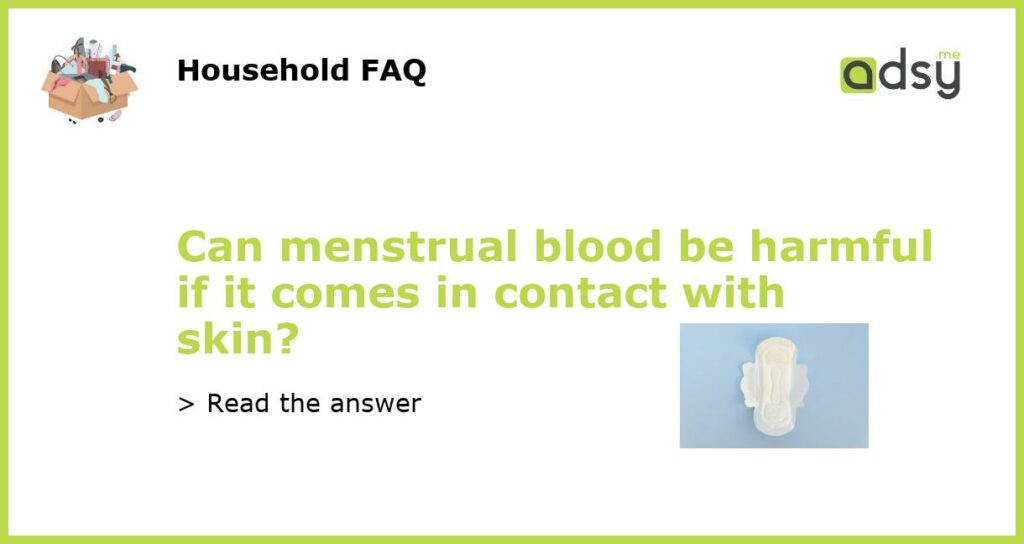Menstrual Blood and Skin Contact: What You Need to Know
Many women have wondered whether menstrual blood can be harmful if it comes in contact with the skin. Let’s take a closer look at this question to better understand the potential risks and implications.
Understanding Menstrual Blood
Menstrual blood is the uterine lining that is shed during a woman’s period. It is a combination of blood, mucus, and tissue. While it may vary in color and consistency, menstrual blood is generally safe and free of harmful bacteria or pathogens.
Possible Risks of Skin Contact with Menstrual Blood
In general, skin contact with menstrual blood is unlikely to cause any harm. However, there are some factors to consider:
- Sensitivity or Allergies: Individuals with sensitive skin or allergies may experience irritation or a mild allergic reaction. If you know you are prone to skin reactions, it may be wise to avoid prolonged contact with menstrual blood.
- Bloodborne Pathogens: While menstrual blood itself is not considered a high risk for spreading bloodborne infections like HIV or hepatitis, it is important to handle any bodily fluids with care. If you have an open wound or broken skin, it is recommended to avoid direct contact with menstrual blood to minimize the risk of infection.
- Menstrual Cups or Tampons: If you use menstrual cups or tampons, the risk of direct skin contact with menstrual blood is minimal. These products are designed to collect the blood internally, reducing the chances of it coming into contact with your skin.
Precautions to Take
While the risks are generally low, it is still advisable to take certain precautions when handling menstrual blood:
- Wash Hands: Always wash your hands thoroughly before and after changing tampons or menstrual cups to minimize the spread of bacteria.
- Change Regularly: To avoid prolonged exposure to menstrual blood, change your tampons, pads, or menstrual cups regularly as instructed by the manufacturers.
- Proper Disposal: Properly dispose of used tampons, pads, or menstrual cups in a sanitary manner. Wrap them in tissue or use disposal bags designed for menstrual products.
- Hygiene: Maintain good personal hygiene during your period by showering regularly and using a gentle, pH-balanced cleanser to clean the external genital area.
When to Seek Medical Advice
In most cases, skin contact with menstrual blood is not a cause for concern. However, if you experience any unusual symptoms or skin reactions after coming into contact with menstrual blood, it is advisable to seek medical advice. This is particularly important if you have a known allergy or sensitivity to menstrual blood or if you have an open wound or broken skin.
Remember, everyone’s body is different, and what may be harmless for one person may cause a reaction for another. It’s always best to listen to your body and seek medical advice if you have any concerns or questions.






